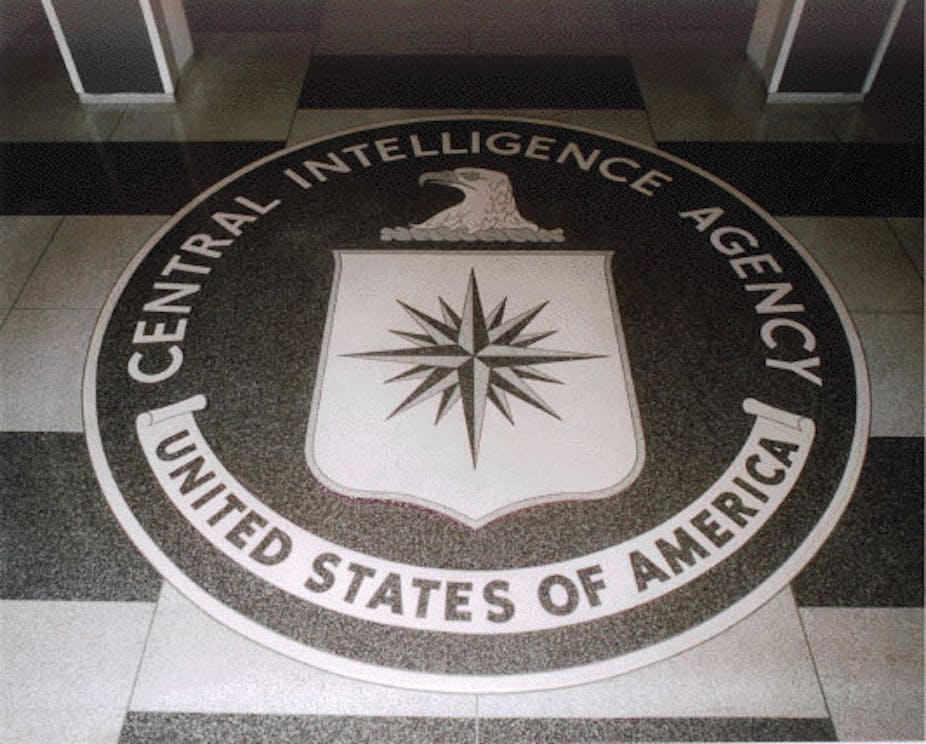The CIA and the congressional committees charged with overseeing it are fighting again. With a report on the agency’s post-9/11 interrogation practices still not forthcoming, senate intelligence committee chair Dianne Feinstein took to the floor to deliver a shocking speech in which she described a torturous few years of mutual suspicion and email hacking between the agency and its overseers.
But strained relations between the CIA and Congress are nothing new. Some 40 years ago, in the wake of various assassination plots and domestic covert operations, the United States began a flawed experiment designed to check presidential control of the secret instruments of government: permanent intelligence committees charged with oversight of the Central Intelligence Agency. The recent charges and countercharges between Senator Dianne Feinstein and CIA director John Brennan serve as a fitting commemoration of this impending anniversary.
The accusations of the theft of classified information by intelligence committee staff, countered by accusations of illegal surveillance by the CIA of intelligence committee computers, all stem from a secret report about the use of “enhanced interrogation techniques,” or torture, during the Bush administration.
The American experiment in intelligence oversight has gone badly from the start. A collection of intelligence committee horror stories would fill a volume that would dwarf War and Peace, but just a few examples should convey the flavor of decades of dysfunction.
Congressional overseers have done their best to turn the intelligence community into the functional equivalent of the Department of Agriculture; that is, another hidebound bureaucracy subjected to pork-barrel politics. In this spirit, a former member of the Senate Intelligence Committee forced the Defense Intelligence Agency to accept an intelligence gathering system that the agency did not want. Not to be outdone, congressman Randy “Duke” Cunningham steered lucrative government business to intelligence contractors in exchange for bribes, all the while serving on the House Intelligence Committee.
Meanwhile, during the 1990s, the agency was condemned for its contacts with unscrupulous characters, as if the business of intelligence could be conducted via a back-alley rendezvous with the likes of Mother Teresa. Penetration of terrorist groups might require an individual to prove his bona fides by engaging in unsavoury actions that wouldn’t sit well with congressional overseers. There’s a reason why America’s human intelligence capability prior to 9/11 was deficient – and a good part of that reason can be traced to the risk-averse overseers of Capitol Hill.
Additionally, the committees increased the number of CIA officials subject to Senate confirmation, resisted one of Bill Clinton’s nominees for CIA director because of his proclivity for secrecy (imagine, a spymaster with a proclivity for secrecy!) and overwhelmed the agency with interminable requests for briefings (numbering in the hundreds) in any given year.
Tom Rogan has observed that the Senate committee is known as “a factory of incontinence, as a place where secrets are leaked for political reasons”. The vice president Joe Biden apparently boasted in the 1980s that he halted covert operations by threatening to go public while serving as a member of the Senate Intelligence Committee. Whenever a member of Congress is fingered for a leak, as was the case with Senator Patrick Leahy in the 1980s, or Senator Robert “the torch” Torricelli in the 1990s, or Senator Richard Shelby in 2004-2005, no punishment ensues.
Former speaker of the house Nancy Pelosi claimed in 2009, “we were not, I repeat, not, told that waterboarding or any of these other enhanced interrogation methods were used.” But Pelosi was in fact told about the enhanced interrogation techniques in 2002, and remained silent until the media exposed the program in 2005. Senator Dianne Feinstein was also aware of the program, as were various other committee members. CIA officials have testified that some members of Congress pushed the agency to go beyond waterboarding to force captured members of al-Qaeda to talk. The classified report on the use of “enhanced interrogation” techniques will in all probability whitewash the intelligence committee’s endorsement of this practice, as well as the fact that there were multiple briefings to members starting in 2002.
The intelligence committees became, in the words of one observer, “partisan free-fire zones” during the Bush years, with battles over leaks concerning the secret prisons created by the agency in the aftermath of 9/11; over whether the Bush administration had “cooked the books” regarding Iraq and weapons of mass destruction; and over the leak by a House committee staffer of a National Intelligence Estimate from 2006. During the recent senate-CIA kerfuffle, senate Republicans defended the agency against Feinstein’s accusations, demonstrating that the climate has not improved since Bush’s return to Texas.
The congressional intelligence oversight experiment has been a failure. Too many committee members have proved that they are motivated by a destructive mixture of moral fastidiousness (when a threat subsides) and an all-encompassing desire to win reelection. The current clash between CIA director John Brennan and Feinstein stems from the agency’s justified fear that it is about to be thrown under the bus once again.
When the next 9/11 comes, or when something even worse comes to pass, members of the committees will point at the CIA and say “how come you didn’t connect the dots?” Carved over the entrance to the Senate and House Intelligence Committee rooms should be the words: “The first to criticise, and the last to assume responsibility.”

